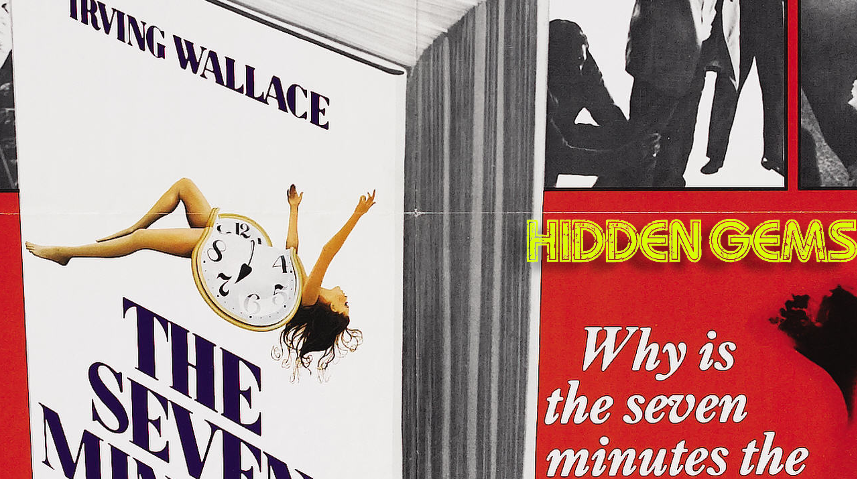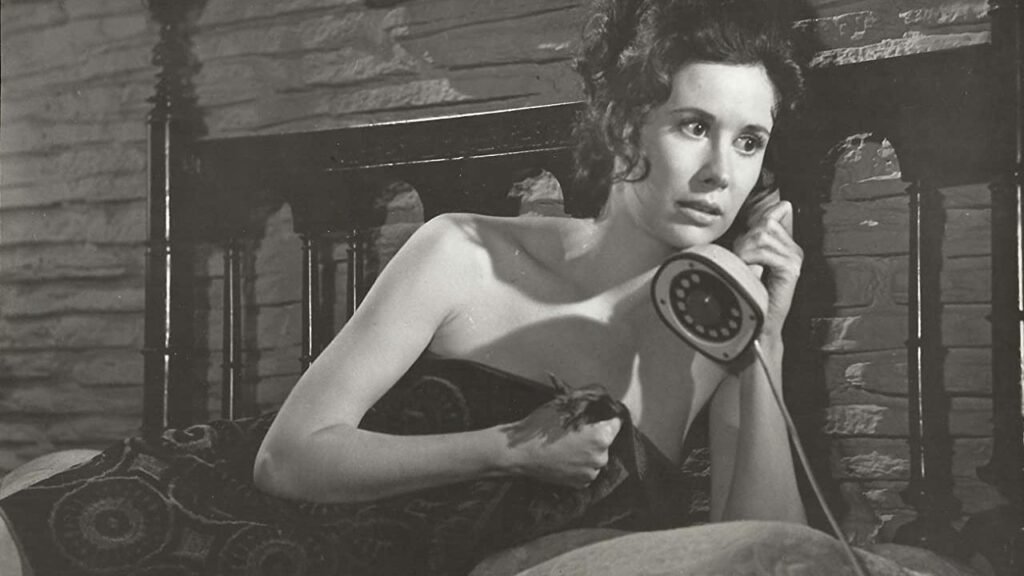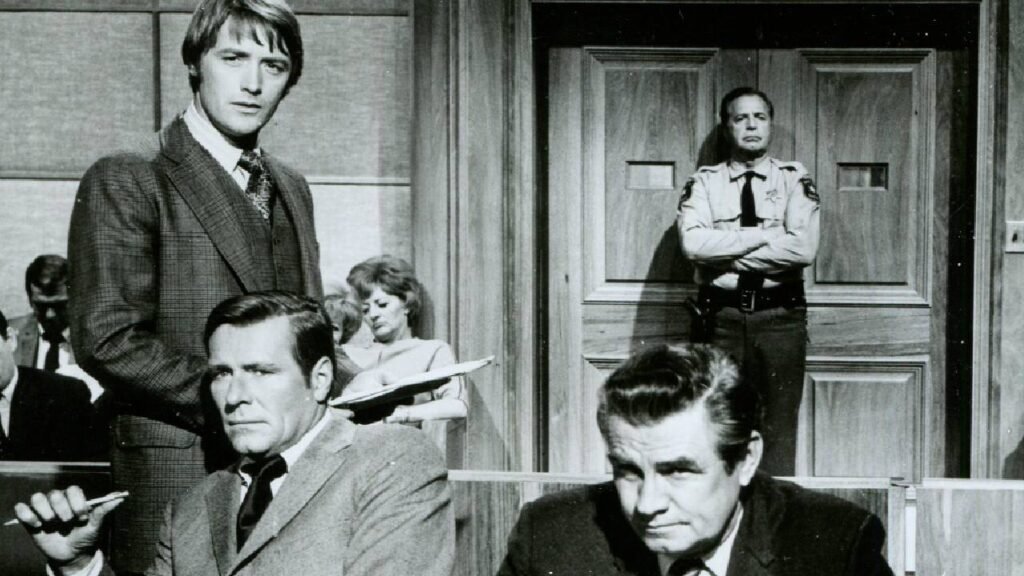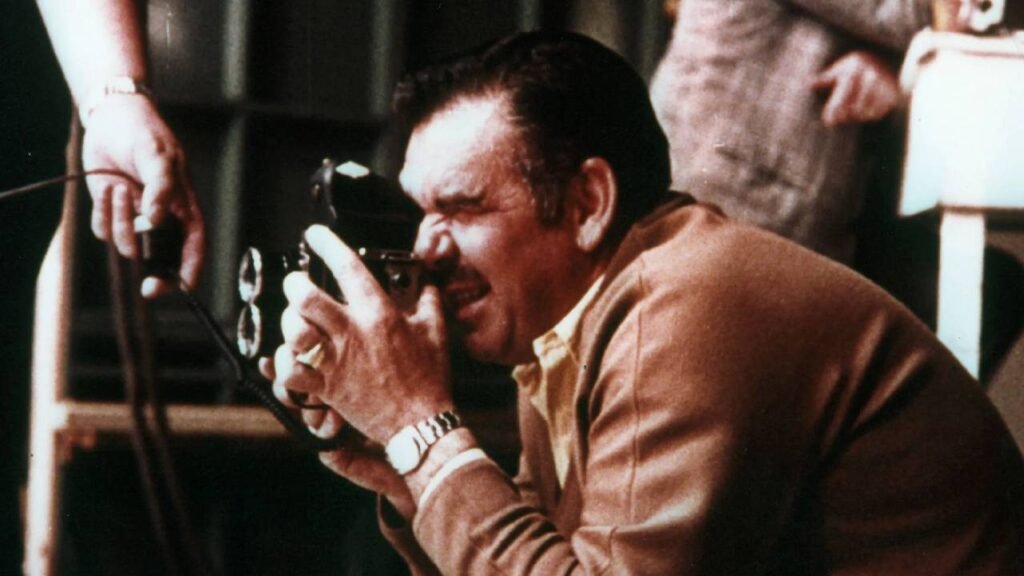Hidden Gems: The Seven Minutes (1971)

The Seven Minutes, 1971 (Marianne McAndrew/Wayne Maunder) 20th Century Fox
“I don’t have to drink poison to know that it’s poison.”
The Seven Minutes is a movie based on a book titled The Seven Minutes, which in turn is about a book titled The Seven Minutes, the most banned book ever in history. It’s kind-of a puzzle box, isn’t it? Or one of those Russian nesting dolls? Okay, so there’s a book titled The Seven Minutes, and authorities are on the lookout for any book sellers brave enough to carry it.
Within the space of the running time of the movie’s credits, a couple of cops (with nothing better to do) case a bookstore, purchase a copy, and then come back to arrest the kid operating the register. This seems shady. It seems like entrapment. They make the case for the description of obscene (or pornographic) material in the California criminal code, and act on it with all the fervor of social justice warriors without corporate backing, except … (and this is a big exception) … this is fascism, not activism.
I mean, is this where my tax dollars go? If I lived in California, that is? I suppose California was a bastion of conversative politics back in the day. Reagan was the Governor, but I don’t know how much of a difference there was between both sides in 1971. It seemed young people were always at odds with those they deemed to be authority figures. Jerry Griffith (John Sarno) is a “decent kid from a good family” who commits rape.

The Seven Minutes is blamed. It’s what’s known as “the Twinkie Defense.” It’s when you blame society (or everything except yourself) for your actions. If the book wasn’t available, the kid would’ve never committed the crime. Temporary insanity. How do you prove insanity? There are two sides to consider. Do you defend the book, which has been accused of being pornography, or do you defend the actions of the young man accused of rape?
The movie breaks it down even further. The burden in court is to prove (or disprove) a book’s power to influence a criminal act. These are opinions that should never be written in a democracy (or even a constitutional republic). It’s best (perhaps not perfect) to not destroy a printed word, or a photograph, or painting in the conjoined names of decency and justice.
Mein Kampf exists, as does Huckleberry Finn. There are books of violent revolution. Jerry is definitely unstable, and possibly a psychopath, but the presence of a diseased mind in the world does not suggest an exceptionally contagious virus derived from a single source. One book cannot turn the world into a collective of rapists. One book cannot bring about peace and unconditional love. Not even The Holy Bible.
Jerry’s sister, Maggie (Marianne McAndrew), reads the book a third of the way through the movie and proclaims it, “beautiful.” One woman’s “beautiful” is another woman’s “obscene.” How do you make a legal ruling based on that? Short answer: you don’t. It’s all subjective. Supreme Court Justice Potter Stewart once said, “I know it when I see it.” He was referring to something that was labeled, “obscene,” and that was his witty retort when asked the definition of obscenity.

The inquisitors argue over his motivation, while Jerry appears doubtful, even dubious at the idea of connecting the book to his crime. Unfortunately, Russ Meyer can’t hold up the weight of his sanctimonious script (not written by him). The Seven Minutes is nothing but talk. There is little to no titillation. If you’re expecting big tits and oversexed characters from all walks of life, you’re liable to be disappointed.
There is plenty of sexual politics and satire on hand, recalling Meyer’s superior Beyond the Valley of the Dolls, but because this movie flopped, Meyer was released from his contract with 20th Century Fox. The ending is appalling. Defense attorney for the publisher, Mike Barrett (Wayne Maunder), does a little detective work to discover that the author of the book, J.J. Jadway, faked “his” own suicide and disappeared.
Jadway appears to be a pseudonym for another writer, revealed to be Constance Cumberland (Yvonne “Lily Munster” De Carlo). Barrett gets her on the stand to proudly proclaim that The Seven Minutes is about a young woman’s erotic journey … yadda, yadda, yadda … and that it is NOT pornography. She also discloses that she met secretly with Jerry and determined that he was impotent, therefore incapable of rape! What?!

Apparently, only strapping, virile men are capable of rape? The opening scene is shot as an overt rape, and for me, attempted rape is still fucking rape. What’s more, I’d say impotence can be a major catalyst for rape. Not according to Constance Cumberland or the court. This is an incredibly dated view of rape for a movie made in 1971. Women are not play-things for the amusement of men, nor do they taunt men into raping them.
If you’re not convinced, check out Faster, Pussycat! Kill! Kill! That movie was made six years before The Seven Minutes. So, with the case closed, Barrett and Maggie get together and we have another inexplicable happy ending for a Russ Meyer movie. I’m kind-of glad he stopped working for mainstream Hollywood. The cast of The Seven Minutes is an incredible collection of character actors from the late ’60s.
There are the regulars: Charles Napier, Edy Williams, and James Iglehart from Beyond the Valley of the Dolls. Wolfman Jack and John Carradine show up in cameos. Star Trek alums Jan Shutan (who gives us the movie’s quote), Stanley Adams, David Brian, and Charles Drake pop up. This is Tom Selleck’s second film appearance after Myra Breckenridge, which I will be reviewing in the future. The Seven Minutes is a hard movie to find. It’s been given no DVD or blu ray release to my knowledge. The movie screams for a restoration. B.B. King performs the movie’s theme song.

